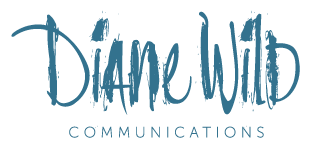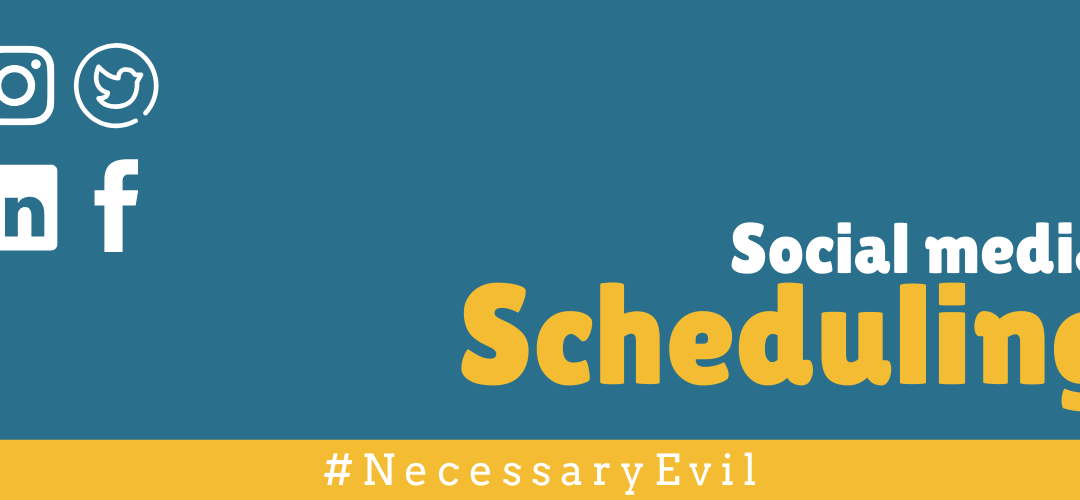But yes, often a necessary evil
I know, I know, we’re all busy, juggling multiple priorities, and if you run a business, social media is likely not your number one priority. Even if you outsource the task, you’re likely hiring someone with multiple clients and their multiple social media accounts, and you need to budget their time to match your budget. And if you’re the one being outsourced to, you have to find a way to manage those multiple clients with multiple social media accounts without living online (more than you already do).
Hootsuite, Sprout Social, Buffer and many other schedulers make populating all those channels at peak times so convenient. And it’s in those companies’ interest to sell us on the idea that scheduling is a wonderful thing. For large organizations who have dedicated social media staff monitoring, responding and looking for opportunities and risks, it often is.
For most of us, we’ve been sold a lie. Social media scheduling is evil. Often a necessary evil given time and budget considerations, but even if it makes all the sense in the world for you, keeping in mind the reasons why you shouldn’t schedule can help reduce some of the problems when you do.
- The unexpected is never expected

The problem: A common social media issue is promoting an event that has been cancelled – unlike the scheduled posts. Also, major local or world events can change the mood on social media quickly and provide unexpected context that means a formerly innocuous post could become tone-deaf or offensive. Don’t be the account that continued to promote a concert after its cancellation due to a fatal stage collapse.
The solution: If you can’t avoid scheduling, at least be alert to events or news that might make your scheduled posts suddenly inappropriate. Build a regular check on scheduled posts into your communications and event planning processes.
2. Unsocial social media
The problem: When people rely on scheduling, they’re often primarily concerned with populating their channels with their own content. But that’s both the easiest and least effective use of a powerful medium. Authentically finding and nurturing a community on social media helps you reach more of the people you want to reach, which is hard to do when you eliminate the social part of social media.
The solution: Don’t forget about following, engaging with, and sharing content from like-minded accounts. You can still do these things when you’re scheduling, just remember to share the love. When I can’t avoid scheduling I do a hybrid. For example, I manage the social media accounts for an organization one day a week, so on that day I schedule posts for the week ahead — but then I reserve a bit of the contract time to share and react to others’ posts throughout the week, too.
2. Hello? Is anyone there?

The problem: When you post something online, people expect a human being is at the keyboard at that moment. Yes, even though they’ve heard of scheduling and bots. If you respond to a comment a week after it was posted, you’re sending the message that you’re not interested in engagement, which is social media’s superpower.
The solution: You can use notifications wisely, balancing your need to not be at the mercy of every ping as you go about your business and your life, and the desire to provide timely responses. Or schedule regular check-ins to your accounts to respond as needed.
The takeaway
You might agree with everything here and continue to schedule most of your social media posts. I get it. I do that for clients too. But if we believe scheduling is a necessary evil, we have more hope of keeping the antidotes top of mind.



Wise words dear social mentor!